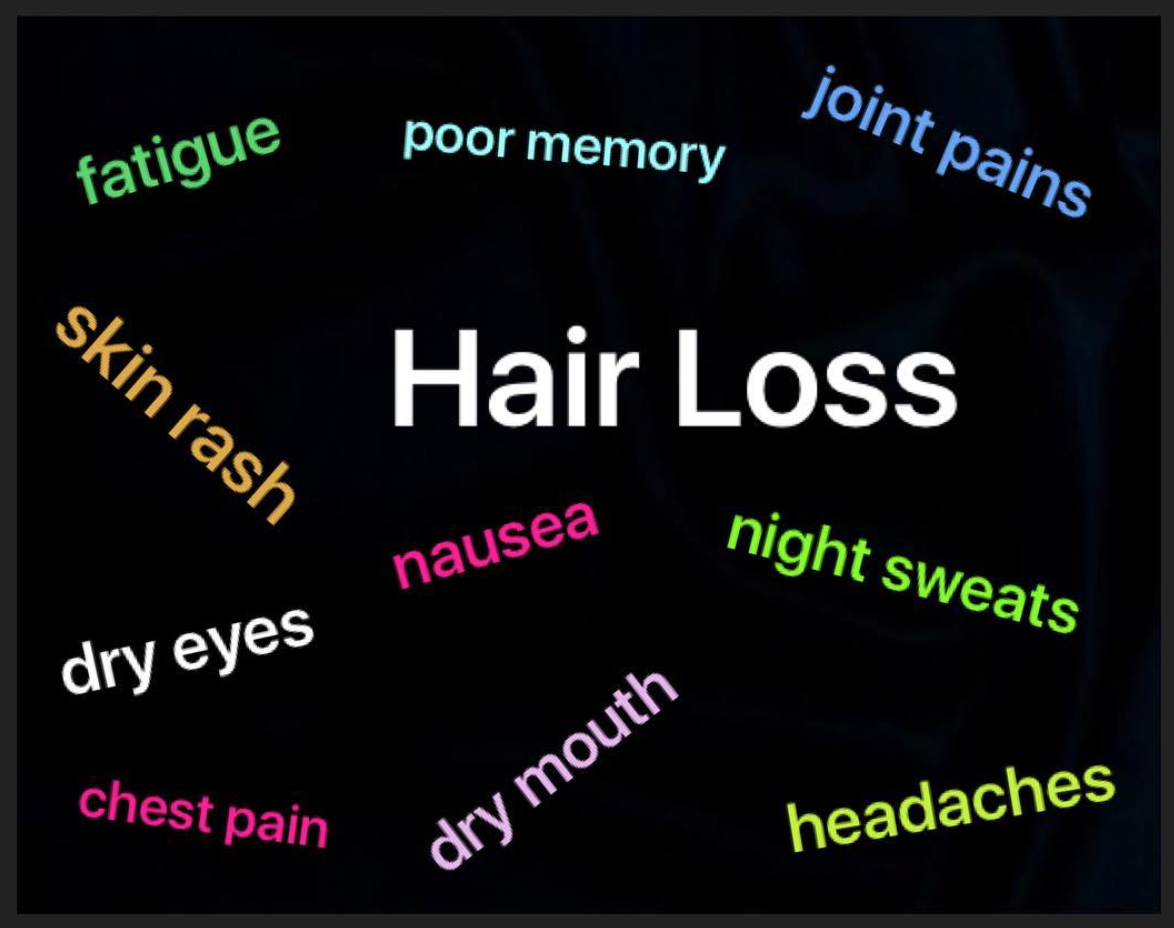Breast Implant Illness and Hair Loss
Hair Loss from Breast Implants: Any relationship?
I believe that there are countless numbers of hair loss conditions that exist in the world that have not yet been described in textbooks. The reason I believe this is quite simple - I see and hear them every day in my clinic. There are stories of hair loss from certain medications, various unusual patterns of hair loss in otherwise common conditions. Every once in a while a new scenario arises that again causes pause - one such example is a syndrome of medical conditions that arise in women who have had breast augmentation and breast reconstruction. Readers should note that this is a very different form of hair loss than the telogen effluvium that sometimes accompanies the surgery itself (or any surgery for that matter). This has been termed 'breast implant illness.' Whether or not hair loss occurs in a small proportion of women who have undergone breast augmentation continues to be studied. It's an area of research that we follow closely given how often these scenarios arise in our clinic.
Breast implants and human health
Anything that triggers a systemic reaction inside the body has the potential to cause hair loss. One therefore needs to look at the data on the effects of breast implants on human health. In the last 5 years new data has emerged that breast implants may be associated with cancer - specifically the development of a type of T cell lymphoma called anaplastic large cell lymphoma. The FDA continues to study this association and the risk may be in the order of 1 in 10,000 women to as great as 1 in 1000 women.
Breast Implant Illness has many similar names in the research and medical literature. ASIA syndrome (autoimmune/inflammatory syndrome induced by adjuvants) was a name given to a specific disease that can arise with exposure to silicone. To date, it is still controversial as to whether silicone implants increase the risk of true autoimmunity in the body. However, some studies have shown increase incdience of autoantibodies in women with silicone breast implants.
Breast Implant Illness
There is a subset of women with breast implants who feel that their health has changed in some way followed breast implant surgery. The term 'breast implant illness' is a term that has been given to the constellation of symptoms and signs that are proposed to be attributed to breast implants. The mechanism by which this would or could occur is not yet known. Women who report symptoms consistent with breast implant illness frequently mention chronic fatigue, chronic pain, anxiety, irregular heart rate, neurological problems, body odour, rashes, endocrine problems - and hair loss. To date, it is hard to prove an association of these symptoms of these women to their breast implant surgery and many alternative explanations are frequently given. Many symptoms are dismissed. Many women, but not all, experience some degree of improvement in symptoms after explanation (removal of the implant).
Breast Implant Illness and Hair Loss
As mentioned in the opening paragraphs, I strongly believe that there are countless numbers of hair loss conditions and syndromes that are unrecognized and have not yet made their way into textbooks, and classrooms of learners. (This concept forms Principle 9 of the 20 Principles that govern my practice).
There have been several studies examining breast implant illness and one some have addressed the issue of hair loss. One such study was a 1996 study by Brawer which reported illness in 300 women who had silicone breast implants. Most women (90 %) developed their illness within 6 years of the implants. Although rupture of the implant was present in some affected, 97 % of women did not experience rupture prior to their symptoms. Rupture however, did worsen symptoms.
The table below shows the most common signs and symptoms in patients with breast implant illness according to the 1996 Brawer study. Fatigue tops the list followed by arthritis and chest pain. Hair loss is number 4 on the list and experienced by 59% of patients with breast implant illness.
from Arthur Brawer. J. Clean Technol Environ. Toxic & Occup Med Vol 5(3) 1996
Conclusion
Modern medicine is still in the early stages of understanding whether and to what degree breast implants affect health. There does appear to be an association with anapaestic large cell lymphoma and an increasing number of women are reporting concerns that can only be grouped together for now under a non specific term 'breast implant illness.' Hair loss has been reported by many women with breast implant illness. In my practice having seen at least a dozen cases, most end up being diagnosed with telogen effluvium, chronic telogen effluvium and/or androgenetic alopecia - which are extremely common in the population anyways. Pinpointing an exact cause is challenging. Explanation, or removal of the implant, is helpful only in some.
For now, continued study of breast implant illness is warranted.
Reference
1. https://www.fda.gov/MedicalDevices/ProductsandMedicalProcedures/ImplantsandProsthetics/BreastImplants/ucm239995.htm
2. Tang S et al. Breast implant illness: Symptoms, Patient Concerns, and the Power of Social Media. Plast Reconstr Surg. 2017
3. Arthur Brawer. Chronology of systemic disease development in 300 symptomatic recipients of silicone gel-filled breast implants. J. Clean Technol Environ. Toxic & Occup Med Vol 5(3) 1996
4. Bar-Meir E et al. Multiple autoantibodies in patients with silicone breast implants. J Autoimmune 1995
This article was written by Dr. Jeff Donovan, a Canadian and US board certified dermatologist specializing exclusively in hair loss.


